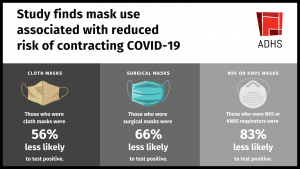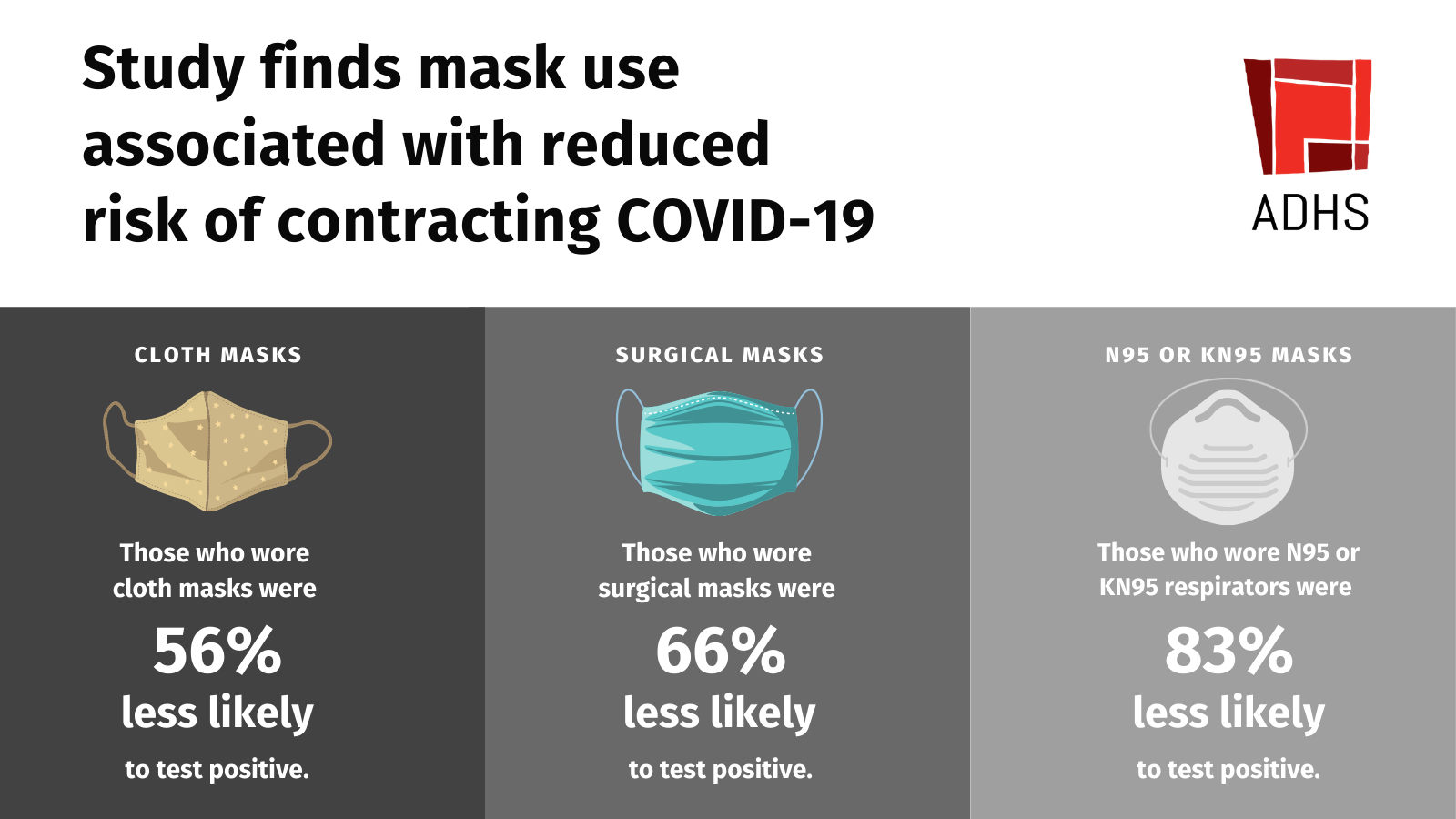 Masking up and being up to date on COVID-19 vaccinations are a powerful combination when it comes to reducing the risk of testing positive, according to a new study published in the Centers for Disease Control and Prevention (CDC) Morbidity and Mortality Weekly Report.
Masking up and being up to date on COVID-19 vaccinations are a powerful combination when it comes to reducing the risk of testing positive, according to a new study published in the Centers for Disease Control and Prevention (CDC) Morbidity and Mortality Weekly Report.
Research has already shown that face masks and respirators, when worn properly, are effective at filtering virus-sized particles in laboratory settings. The new study looks at their effectiveness at preventing COVID-19 infection, based on a randomly selected group of California residents tested for COVID-19 during 2021.
The results: Consistent mask use in public indoor settings was associated with lower odds of testing positive for COVID-19.
How much lower?
- Those who wore cloth masks were 56% less likely to test positive.
- Those who wore surgical masks were 66% less likely to test positive.
- Those who wore N95 or KN95 respirators were 83% less likely to test positive.
ADHS has information on different types of masks and the advantages of each at azhealth.gov/Masks.
We already know that COVID-19 vaccines reduce the risk of infection while offering robust protection against severe illness and death. In December, as Omicron became the dominant variant in Arizona, unvaccinated people were 4.1 times more likely to test positive for COVID-19, 24.4 times more likely to be hospitalized with COVID-19, and 57.9 times more likely to die from COVID-19 than the fully vaccinated.
We strongly encourage you to mask up as part of your COVID-19 precautions, along with maintaining physical distance, washing your hands thoroughly and often, staying home if you are sick, and getting tested if you have symptoms or at least five days after being exposed.










